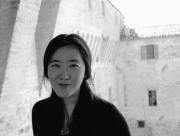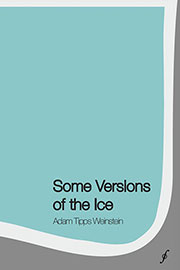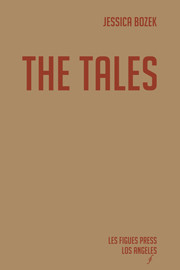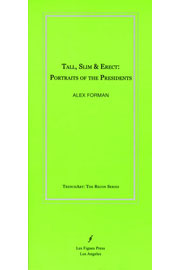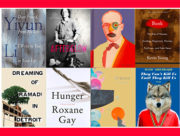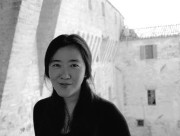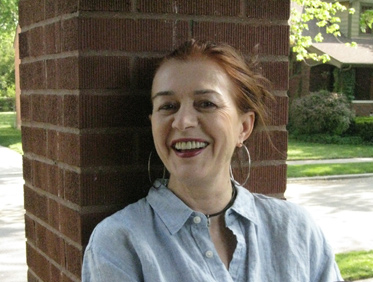irradiated cities
Mariko Nagai
Prose, Literature | $17.00
Not Otherwise Specified
ISBN: 978-1-934254-68-4
Size: 8×8″
Pages: 144
Binding: Softcover, Perfect
Winner of the 2015 NOS Book Contest, as selected by guest judge lê thi diem thúy.
Starred review from Publishers Weekly.
Praise for irradiated cities:
“Nagai’s descriptions capture something deeper than history books do. By meshing small moments—“organs float in jars with wooden number tags”—and the overarching history in which they occur, Nagai speaks to both the individual and to the unifying social trauma […] The book wobbles brilliantly on the border between the known and unknown.”
—Publishers Weekly, starred review
“Early on in irradiated cities we encounter this sentence, tucked in a parenthetical: “(it always seems to be clear on catastrophic days).”
Catastrophe wipes away certainty and tips us all into a state of ‘seems,’ of looking at one thing in the changed light of another, of seeing a landscape in relation to what it no longer holds, of recognizing the human face within the seemingly limitless horror of what humans are capable of inflicting on ourselves and our environment.
This book, a sifting and circling, a calm and masterful layering of voices and vantage points, a slowly emerging portrait of four different Japanese cities and their inhabitants, resists any effort at arrivals or conclusions. By doing so, it shows us that while we may have an accumulation of facts for what happened on a particular day in a particular place, perhaps even the names and words and pictures of the people to whom catastrophe struck, and would not let go, it is within the dark sedimentation and the feather-light drift of history that we might glean what yet remains, and gives off light, to summon and trouble us still.”
–lê thi diem thúy
“Writing in the long shadow of history and social progress following atomic bombings in Japan, the poet admits that ‘suffering is photogenic’ and so is its aftermath. Hauntingly and almost rhythmically juxtaposed, these poems, full of critical to devastated voices opening out into other voices, and images—shadowy, stark, implicit and adumbrative, foregrounding casual scenes and objects to shattered edifices, hinting of past and present trauma and resiliences—document not only the horrific squalor of previous suffering, but also the subtler ironies, painful contradictions and social ambivalences surrounding contemporary encounters with nuclear energy.”
—Cyril Wong
“Irradiated Cities is a sustained crescendo of eternal contamination : brutally beautiful prose choreographed with colons : : : burning poetry : trauma : multiple truths of Hiroshima, Nagasaki, Tokyo, Fukushima : urgent utterances punctuated by godly photographs : both language and images empathetically crafted by Mariko Nagai : poet : photographer : writer : novelist : translator : teacher: historian : citizen : She articulates the impossible – suffering, grief, loss, memory, guilt, complicity, silence, traces, fallout, echoes, the critical link between nuclear power and nuclear weapons : This is a book that everyone should read : Like Svetlana Alexievich’s Voices from Chernobyl, Irradiated Cities is a brilliant requiem for our future : a testament to our conflicted past : a declaration of proof of our troubling present that teeters on the edge : : :”
—elin o’Hara slavick, author of After Hiroshima and Bomb After Bomb: A Violent Cartography
“This is an immensely human book. Mariko Nagai’s powerful visual and poetic meditation traces Japan’s encounter with radiation and nuclear technology through four primary locations. From nuclear attack to nuclear testing to nuclear power plant meltdown, Japanese bodies, and Japan as a body, have borne the scars of the atom. Nagai traces threads of event, aftermath and inheritance, weaving her way through generations and locations, revealed in snapshots, of the eye, of the mind, and of the spirit.”
—Robert Jacobs, author of The Dragon’s Tail: Americans Face the Atomic Age
“While visiting Mariko Nagai’s Irradiated Cities, I became conscious, self-conscious even, of the book, the writing and photographs, as the revelation of a skin. The skin of irradiated cities—their people and their landscapes—and the record of what and how they endured, and continue to endure, as the bearers of Japan’s (the world’s) unremitting nuclear traumas. The book as skin is a wound; it grows and stretches and repairs itself and reopens, accommodating memory and counter-memory into its tissue, taking the form of a narrative constantly evolving, constantly being resuscitated, by the questioning of our understanding (i.e. misunderstanding) of the truths about the nuclear atrocities and catastrophes by which our fears and fantasies (alike) have been conceived. The truths (themselves) have been irradiated. The skin is legacy. Nagai has returned (is returning) the skin, therefore the power, to the living and the dead. Irradiated Cities is histopathological. It is many mirrors and the shock of their reflections. And by visiting, I mean also: visited by. Because: I am bound. I have not left. And cannot leave. There is no outside of the Circle. An afterlife, or so I think within the consciousness of Irradiated Cities as a book of visionary mending, has, for the figures of each deepest burden, not yet been achieved.”
—Brandon Shimoda, author of Evening Oracle, winner of the William Carlos Williams Awards
“Mariko Nagai’s Irradiated Cities unfolds in a feverish, relentless tumble of phrases and sentence fragments—as if the book’s central theme (the history of radiation in Japan) is too immense, too painful and overwhelming to be contained in a more conventional narrative. Nagai’s text is densely layered and stacked with linked events, images, historical facts, anecdotes, personal observations, and interrogations that often echo obsessively back and back on themselves. The cumulative effect is total immersion in an emotional and psychological climate that’s chilling, sobering, enraging, claustrophobic, and ultimately haunting. Nagai engages a journalist’s detachment with an empathic, unwavering gaze, making Irradiated Cities much more than a historical document. Starkly abstract black-and-white photographs provide spaces of stillness between sections, as well as wordless commentary. This is a powerful, deeply researched, and searing work that refuses foreclosure while continually challenging the reader to think and feel.”
—Mari L’Esperance, author of The Darkened Temple
“What a masterly, sharp, irradiated and illuminated book this is. The prose, the lyrical bluntness, the innate anger is so strong. And what a powerful correspondence between the text and the photos that also seem irradiated; with silence, shadows, stories never told and of course, sorrow. Irritated Cities is a mesmerizing book written by an amazingly wise and sensitive writer, Mariko Nagai.”
—Dorthe Nors, author of So Much for that Winter
“Often a photograph gives us a sense of the already disappeared, of the just missed, of the moment of the impossible, a line of flight from the past into the present. Mariko Nagai’s photographs, when rubbed against her poetic writing, takes us deep into the liminal space that opens, however briefly, and allows us a moment of true seeing. She unblinds us, if such a word could explain the beauty and power of her writing and photographs. Seeing must become blind before sight can return. Mariko Nagai does this. She brings us a seeing of mourning. But this is not simple mourning, it is suffering. There is a suffering inside this silence that would be without speech, without image, were it not for this stunning book. There is nothing innocent about surviving. There is nothing glorious in surviving. There is only suffering. Mariko Nagai’s writing proves that language does indeed remain possible, even when faced with the trauma of suffering, of remembering, of forgetting, of loss, of fear. Language can open the silence. Language can rescue mourning from suffering and give us new ways for seeing.”
—Doug Rice, author of Here Lies Memory
“So often is poetry a reminder that the world is crumpling and that we are falling apart. Irradiated Cities goes beyond this. The juxtaposition of everyday images and poetic reenactment about traumas experienced by Hiroshima, Nagasaki, Tokyo and Fukushima haunts and begs us to confront both the cities and ourselves in pieces. In this unique collection, those cities are humans – bigger but sadder than us. They live with their pasts. But what does it mean to survive from them, when we do not even look back at “what it means to remain as living and having lived?” Irradiated Cities is one of the very few contemporary poetry books about Japan written in English with craft, urgency and quandary. Nagai is a major global poetic voice.”
—Nicholas Wong, author of Crevasse, winner of a Lambda Literary Award
“In a stunning collage of fragmented, lyric text and hauntingly eerie black-and-white photographs, Mariko Nagai’s Irradiated Cities braids together the humanitarian and ecocritical atrocities of the history of nuclear empire in Japan. This starkly lovely project delicately exposes the complex interweaving of American warfare, nuclear experimentation, propaganda, and corporate misinformation, alongside detrimental medical and environmental legacies—all palimpsest by the devastating human narratives of survivors. Juxtaposing sections on Hiroshima, Nagasaki, Tokyo, and Fukushima, the narrative of contemporary Japan is revealed—pika don!—as being inextricably linked with the history of atomic warfare and nuclear energy. This searing, impossible-to-forget book is gorgeous, important, and fiercely necessary.”
—Lee Ann Roripaugh, Author of Dandarians
“From Hiroshima to Fukushima, Nagai’s haunting images and spare, lyrical text capture what lies beneath and between, before and after, and at the precise moment a child, a mother, a city, and a vast landscape is irradiated. Even the truths about these tragedies were—and still are—mired in toxic distortions. Exquisite, powerful, and heartbreaking, Irradiated Cities is essential reading for world leaders and citizens alike, so that we can grasp, at a level beyond words, what we as humans are capable of—and how, if we choose, we might change the course of history for generations beyond our own.”
—Susan Southard, author of Nagasaki: Life After Nuclear War

